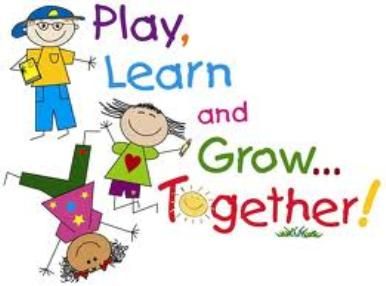Do I have to include all the usual subjects?
What is the most important information to include?
- An awareness of your child's current abilities/learning in each area
- Appropriate goals or intentions for their development in each area over the coming year (ie, identifying "the next steps")
- Specific plans/resources/ideas for how to support and encourage that development
- Some method of tracking their progress so that you will know if they are achieving as expected (and can demonstrate that if asked)
So what will I write about in the subject areas?
English/literacy: This subject is about developing reading, writing, listening and speaking skills. For a child performing at the level of a 2 year old, for example, you might be focussed on reading them stories, talking to them about the things you see and do, incorporating suitable activities to develop gross and fine motor skills (essential to pre-writing development), and generally exposing them to language in appropriate ways. If there is speech therapy involved, formal or informal, talk about that. If the child is capable of responding in some way to stories that are read, discuss that. Essentially, think about early childhood type activities that are aimed at laying foundations for language development, and focus on those. Also, if your child has, for example, a physical disability that limits their ability to write with a pen, but is more advanced cognitively, then discuss how you are providing means to enable the child to advance in the areas where they are able without undue limitation due to areas where they are less able (this applies to all subjects).
Math/numeracy: the development of understanding and skills around colour, shape, measurement, number, time etc, appropriate to the child's ability. You could talk about how you show him and talk to him about colour and shape, his ability to identify objects, group like objects, count pegs, identify bigger and smaller, shorter and taller etc. Maybe these things are mostly being modelled to the child with limited participation yet. The point is that you know the kinds of things for him to learn, and are using ways to help him with those concepts. A child with more ability might be working on recognising written numbers, counting to 100, measuring objects, helping with baking, playing with money, learning about clocks etc.
Science: The focus here is on exploring the physical world - things you can see and hear, smell and touch or taste. Usually the natural world around you. Discuss how your child is exposed to ideas/things/concepts, how you talk about them with her, how you help her engage with them. Growing some plants? Watching a rainbow? Splashing in puddles and then discussing rain, wet vs dry, mud etc. Watching an ant trail then looking up a short video about ants. Mixing baking soda and vinegar to make a "volcano." Making things with play dough, learning to care for animals. It's all science! Do these activities sound too advanced for your child? No problem -think of what they can do or watch. I have a not-quite-2-year old living here right now. If I think about science and him, it would be water play, sand play, visiting the animals and trying to say their names, some playdough activities, exploring the garden - dirt, plants, bugs, feeling the grass under his feet and the sun on his face - talking to him constantly about the things he points to or we experience etc.
Social Studies: In the early years, this is usually focussed on developing an awareness of self, family and local community. This can be through story, discussion, actitives, local visits etc. How do you help the child understand who they are, who their family are, and where they live - at a very basic level?
Technology: This is about practical and problem-solving skills. So for a young child, very life-based usually. Can your child participate in some fashion in cooking (measuring, stirring, shaping, tasting)? How about gardening? Hitting a half-inserted nail with a hammer or comparing lengths of wood and watching/helping mum or dad with a small project (woodwork)? Or perhaps you will focus on life skills - which can be anything at all really, so long as it has a practical focus.
Health and P.E: Two sides to this - describe how a child is regularly physically active (in keeping with their abilities), and talk about how you will help them develop appropriate health knowledge. The latter will depend on their understanding at this stage, but probably will focus on things like washing hands, cleaning teeth, brushing hair, getting dressed, toileting etc. Later you will talk about being sun smart, stranger danger, basic first aid etc. If there is any OT/PT being done, I'd include info on that here.
The Arts: art, music, dance and drama. How does your child participate in any of these? Finger painting? Listening to music? Dancing to music? Bashing on a xylophone or drums? Dressing up?
Completing the application
The exemption requirements overall apply to all children and families. The specific content will vary according to the child's age, needs and abilities. My exemption guide pack will walk you through the requirements if you like, and I'm happy to review applications to provide more specific guidance case-by-case. See HERE.
You can do it! Just take it one step at a time! :-)

 RSS Feed
RSS Feed
